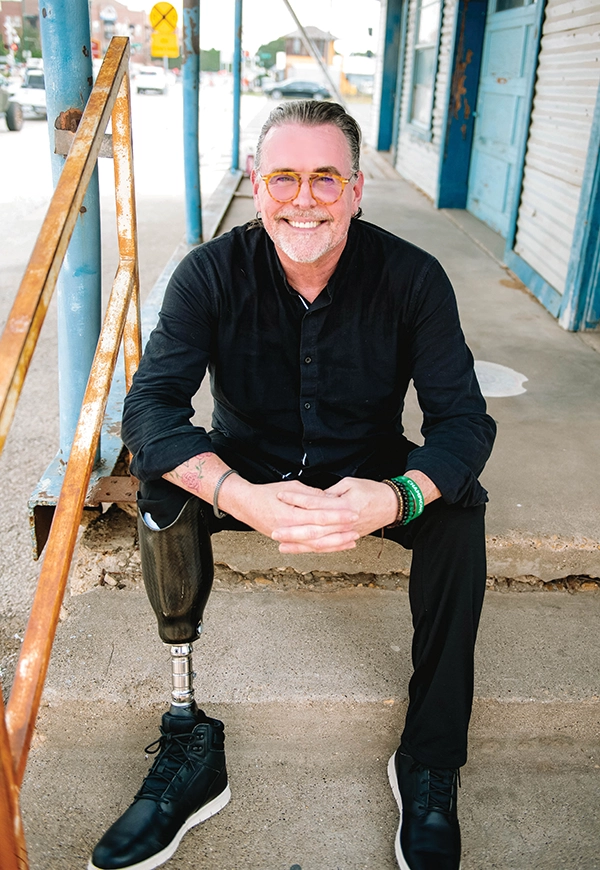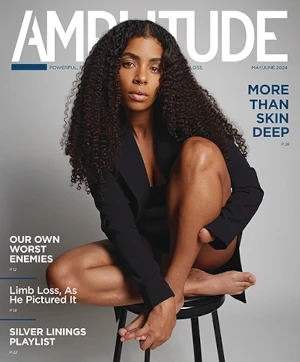
Courtesy Hugh Boyle.
In his first 30-odd years as a high-level advertising pro, Hugh Boyle only worked with one colleague who had a disability.
“He’d had spinal issues when he was a kid,” says Boyle, a British native who’s held senior positions with large agencies on both sides of the Atlantic. “One of his legs was considerably shorter than the other, so he walked with an awkward gait. He was very talented, but perhaps he didn’t rise as high as an able-bodied person would have. Advertising is a beautiful-people industry. You don’t see many people who don’t fit the norm.”
These thoughts raced through Boyle’s mind in March 2022 as he recovered from a right below-knee amputation, which came after a decade’s worth of limb-salvage efforts. “I’m looking down at the place where my leg used to be,” he says, “and my initial reaction was: ‘What the hell am I going to do now?’”
It turns out Boyle is going to continue doing the work he’s always done. This summer he announced the launch of Doable, the first creative services agency in North America to be staffed predominantly by talent with disabilities. A companion organization, the Consumers With Disabilities Research Foundation (CoDi Research), will become the nation’s first market-research firm to focus exclusively on people with disabilities. Both entities are actively recruiting amputee participants.
“The amount of under-utilized creative talent we’ve found within the disabled community is staggering,” explains Boyle, who co-founded Doable and CoDi with fellow industry veteran Bob Wagner (who’s hearing impaired). “There are two societies of disabled professional photographers in North America alone. There’s a group of professional disabled videographers. There’s an enormous group of copywriters. These people have always been there, but they’re basically invisible. We’re going to give these creative people the chance to share their talent with the marketing world.”
Doable will give brands a unique opportunity to connect with disabled consumers—a large, lucrative market segment—because its creative team understands disability from firsthand experience. “If there are no disabled people in art rooms or copy rooms, then the way disability is represented in advertising is inevitably going to be bad,” Boyle says.
While Doable corrects for the absence of disabled talent, CoDi Research will fill the gaping hole in market research about disabled consumers. The organization will operate independently of Doable, drawing on a network of several thousand consumers with disabilities to provide focus-group feedback, customer surveys, and other services. It will pattern its efforts on the London-based Research Institute for Disabled Consumers (RIDC), which has helped global brands attract disabled customers and build lasting, loyal relationships with them.
“When I found out I was losing my leg, I was asking myself: ‘Why is this happening to me?’” Boyle says. “Well, this is why it’s happening. I’m in this unique situation of being in this industry for 30 years, and suddenly seeing the world through a very different pair of eyes. I understand advertising, I understand the need, and I know how to fix it. And I never, ever wanted to do something as much as I want to do this.”
If you’re interested in joining Doable’s creative services team or adding your voice to CoDi Research’s panel of disabled consumers, visit doableagency.com and click the “Join Us” tab. To read a full-length Q+A with company co-founder Hugh Boyle, see “Doable Agency Seeks to Give Disability a Makeover” at Amplitude’s website.




